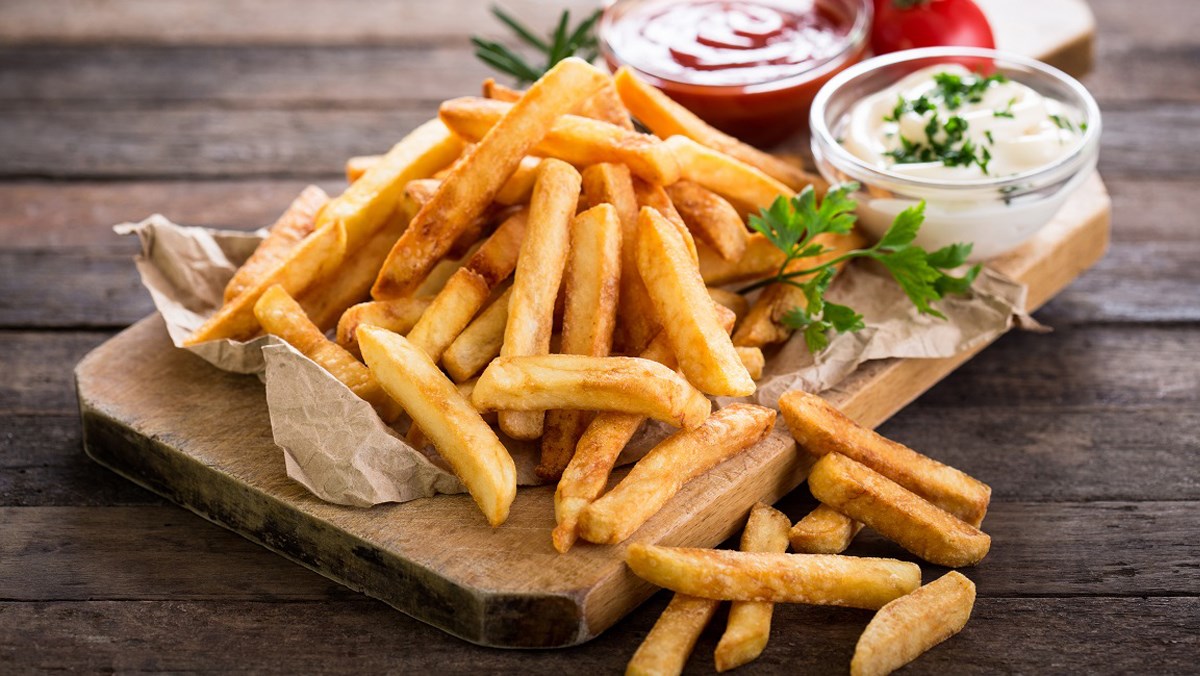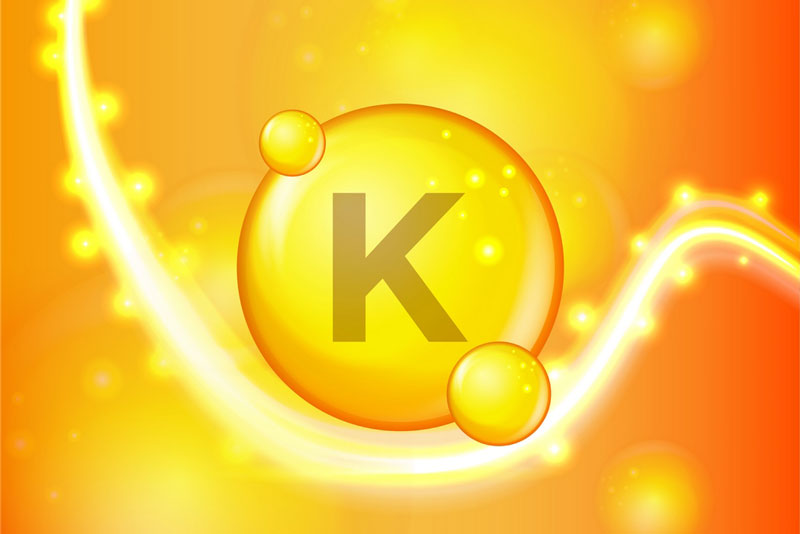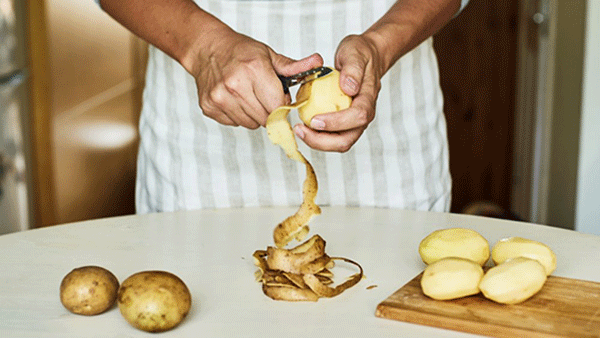Potatoes are a carb-rich food that provides vitamins, minerals, and healthy plant compounds. Moreover, they also help support weight loss and prevent heart disease effectively.
1. General information about potatoes
Potatoes are underground tubers that grow on the roots of the potato plant, with the English name Solanum tuberosum. This plant belongs to the Solanaceae family, related to tomatoes and tobacco.
Potatoes originated in South America, then were introduced to Europe in the 16th century and are now grown in countless different varieties around the world.
In addition, potatoes are a versatile tuber, relatively cheap, easy to grow, easy to care for, and have a high nutritional content.
Potatoes can be prepared in many different forms, including boiled, fried, baked, and are often used as a favorite snack of many people.

French fries are a favorite snack for both adults and children.
2. Nutritional value of potatoes
Cooked potatoes with the skin on are a food source that provides many essential vitamins and minerals for the body, such as vitamin C or potassium.
Potatoes are mostly water, in addition, the main components of potatoes include carbs, protein and a moderate amount of fiber, especially potatoes have almost no fat.
Nutrients in 2/3 cup (100 grams) of boiled/cooked potatoes with the skin on are:
- Water: 77%
- Calories : 87
- Protein : 1.9 grams
- Carbs: 20.1 grams
- Sugar: 0.9 grams
- Fiber : 1.8 grams
- Fat: 0.1 grams
2.1. Carbs
Potatoes are mainly composed of carbs, which act in the form of starch. Carb content usually ranges from 66-90% of dry weight.
Additionally, potatoes contain small amounts of simple sugars, such as sucrose, glucose and fructose.
Because potatoes generally rank high on the glycemic index (GI), they are not suitable for people with diabetes.
However, some potatoes have a medium glycemic index, depending on the variety and how the potato is prepared. Cooling potatoes after cooking can reduce their effect on blood sugar, lowering the GI by about 25-26%.

Potatoes have a high glycemic index so they are not suitable for people with diabetes.
2.2. Fiber
Although potatoes are not a high-fiber food, they can provide a significant amount of fiber for those who regularly eat them.
The skin of a potato is where the most fiber is found, accounting for 12%. Meanwhile, potato fibers are mainly in the insoluble form, such as pectin, cellulose, and hemicellulose.
In addition, potatoes also contain varying amounts of resistant starch, a type of fiber that feeds the beneficial bacteria that live in the gut and helps improve digestive health. Resistant starch also contributes to the body’s blood sugar control.
2.3. Protein
Potatoes have a fairly low protein content, ranging from 1-1.5% when fresh, and from 8-9% by dry weight. In fact, compared to other common food crops, such as wheat, rice, and corn, potatoes have the lowest protein content.
The main protein found in potatoes is patatin, which can cause allergic reactions in some people. Therefore, people with allergies should consider carefully before using them. Potatoes are also a source of many vitamins and minerals that are important for the body, especially potassium and vitamin C.

Potatoes are a rich source of potassium.
2.4. Vitamins and minerals
Potatoes are also a source of many vitamins and minerals that are important for the body, especially potassium and vitamin C.
- Potassium: is the dominant mineral in potatoes, often concentrated in the skin and is very beneficial for cardiovascular health.
- Vitamin C: is the main vitamin in potatoes, however, the amount of vitamin C can be significantly reduced when cooked or processed improperly.
- Folate: is concentrated mainly in potato skin, especially colored potatoes, helps prevent malignant cancers, increases blood volume for women before and after pregnancy.
- Vitamin B6: is a type of B vitamin that plays an extremely important role in the formation of red blood cells in the body, participating in the metabolism of fats, proteins and carbohydrates.
2.5. Other plant compounds
Potatoes are rich in bioactive plant compounds, concentrated mainly in the skin.
In addition, potato varieties with purple or red skin and flesh contain high levels of polyphenols, which are antioxidants that are good for overall human health.
- Chlorogenic acid: This is the main polyphenol in potatoes.
- Catechin: An antioxidant that accounts for 1/3 of the total polyphenol content and is most abundant in purple potatoes.
- Lutein: Found most abundantly in yellow-fleshed potatoes. Lutein is a carotenoid antioxidant that helps promote eye health.
- Glycoalkaloids: A group of toxic phytonutrients produced by potatoes as a natural defense against insects and other threats. Glycoalkaloids can cause some health problems if consumed in large amounts.

Potato peels contain many plant compounds.
3. Health Benefits of Potatoes
Potatoes are a food rich in essential nutrients and provide many great health benefits, including:
3.1. Improve cardiovascular health
Hypertension is a typical sign of abnormally high blood pressure, which is also one of the leading risk factors leading to heart disease.
Potatoes contain a number of minerals and plant compounds that effectively reduce blood pressure. In particular, the high potassium content also contributes to improving high blood pressure conditions, thereby reducing the risk of heart disease.
Some other substances found in potatoes such as chlorogenic acid and kukoamine can also lower blood pressure to lower levels.
3.2. Weight Control
Compared to other carb-rich foods, potatoes have the ability to quickly fill you up, prolong the feeling of fullness after meals, reduce cravings and calorie intake, thereby contributing to effective weight control and loss, especially for overweight and obese people.
Researchers have discovered that potatoes also contain a special protein called proteinase 2 (PI2). This is an inhibitor that helps suppress cravings.
Although PI2 has the ability to limit cravings when used in its pure form, it is unclear whether it affects the amount of trace elements in potatoes.

Potatoes help control weight effectively
3.3. Control blood sugar levels
Potatoes contain resistant starch, which is a type of starch that is not broken down and is completely absorbed when entering the body. Resistant starch when reaching the large intestine will become a food source for beneficial bacteria in the intestine.
Studies have shown that resistant starch has many beneficial effects on health, including the ability to reduce insulin resistance, helping to control blood sugar levels.
To increase the amount of resistant starch in potatoes, you should store them in the refrigerator overnight.
3.4. Extremely versatile
Potatoes are not only very good for health but also extremely convenient and versatile.
You can prepare potatoes in many different recipes, depending on your preferences and purposes, including frying, baking, boiling or steaming. However, the amount of calories in potatoes can increase significantly if fried in a lot of oil.





